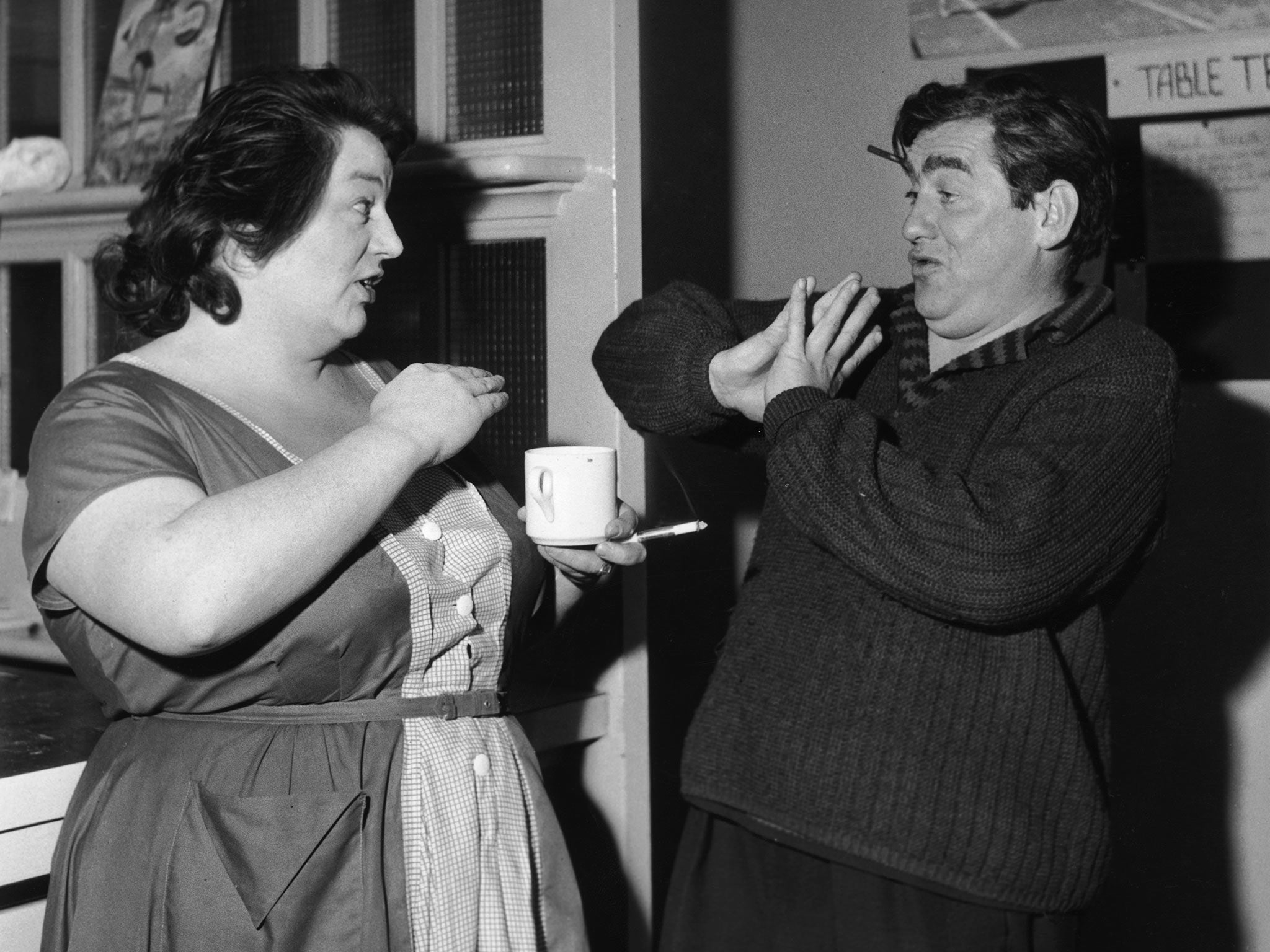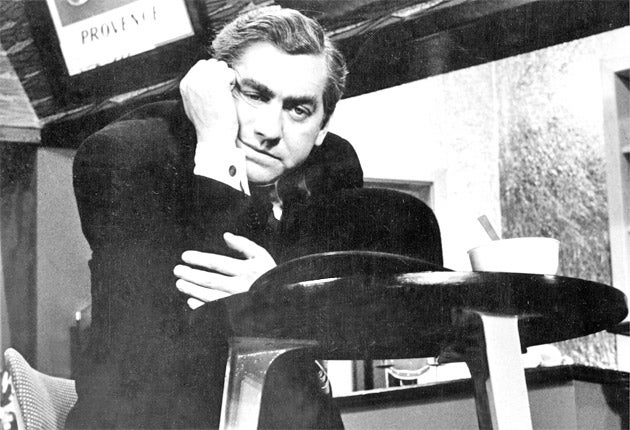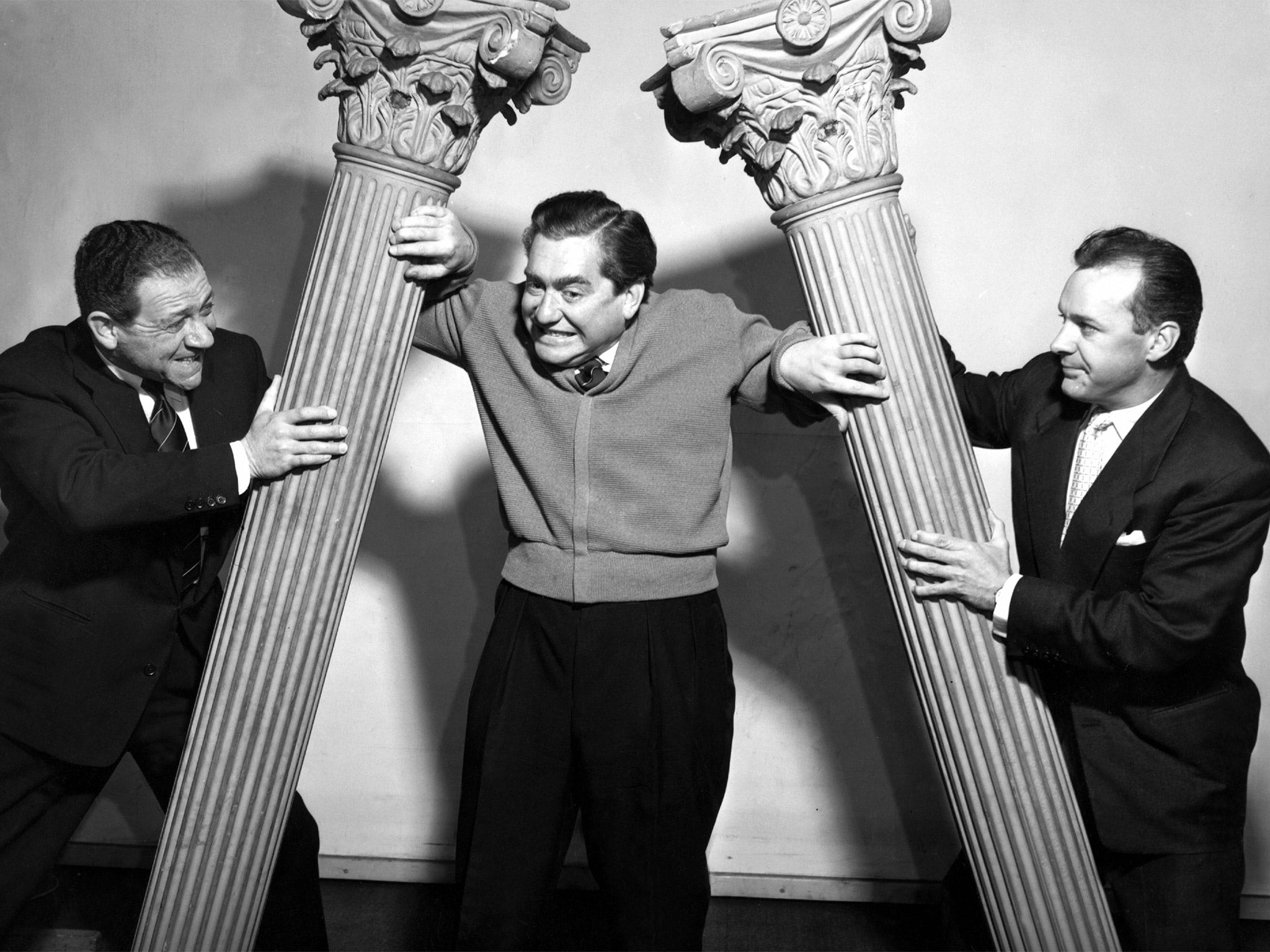Tony Hancock 50 years on: How the legendary British comedian paved the way for Alan Partridge and David Brent
The most beloved comic voice of the post-war years destroyed himself with drink, jealousy and paranoia but remains a great original whose legacy deserves better
Your support helps us to tell the story
From reproductive rights to climate change to Big Tech, The Independent is on the ground when the story is developing. Whether it's investigating the financials of Elon Musk's pro-Trump PAC or producing our latest documentary, 'The A Word', which shines a light on the American women fighting for reproductive rights, we know how important it is to parse out the facts from the messaging.
At such a critical moment in US history, we need reporters on the ground. Your donation allows us to keep sending journalists to speak to both sides of the story.
The Independent is trusted by Americans across the entire political spectrum. And unlike many other quality news outlets, we choose not to lock Americans out of our reporting and analysis with paywalls. We believe quality journalism should be available to everyone, paid for by those who can afford it.
Your support makes all the difference.This week marks 50 years since the death of British comedian Tony Hancock.
Born in Birmingham in 1924 and raised in Bournemouth, Hancock was the post-war generation’s most beloved comic figure, immediately recognisable perched over a cup of tea in trademark Homburg hat and astrakhan-collared coat, his BBC radio show Hancock’s Half Hour and its subsequent TV incarnation drawing an audience of millions every week between 1954 and 1961.
The comic, who played a caricatured version of himself under his own name, was responsible for one of the most famous lines in 20th century comedy when he enquired in one episode precisely how much blood a nurse expected him to donate: “A pint? That’s very nearly an armful!”
Everybody knew Wally Stott’s signature tuba theme and Hancock’s stuttered pronouncement of the title (”H-H-Hancock’s Half Hour”). The Lad Himself was a sensation.
These days, though Hancock is still hugely popular among comedy aficionados and older listeners to BBC Radio 4 Extra, his work is in danger of being neglected by younger audiences – with TV repeats, in unfashionable black and white, increasingly rare.
And then there is Hancock's end: this brilliant man's career cut tragically short by his self-destructive urges and struggle with alcoholism and depression.
Hancock took his own life in Australia on 25 June 1968, overdosing on amylo-barbitone tablets and vodka in a rented apartment in Sydney, aged just 44.
“Things just seemed to go too wrong too many times”, he wrote in a farewell note.
Rather than dwell on his tragic demise, we should celebrate a comedian to whom the bloated egos of modern comic monsters like Alan Partridge and David Brent owe a significant debt, a lineage too rarely acknowledged.
The classic format of Hancock’s Half Hour, always superbly scripted by Ray Galton and Alan Simpson and masterminded by producer Dennis Main Wilson, found Hancock at home in his dilapidated Victorian villa – 23 Railway Cuttings, East Cheam - living in genteel poverty with his child-like Australian lodger Bill Kerr and Rabelaisian secretary Griselda Pugh (Hattie Jacques).

Hancock played an unsuccessful music-hall turn and minor stage personality, frequently ripped-off by Cockney conman Sid James and beset by the idiocies of an array of supporting characters, all voiced in the unmistakeably nasal tones of Kenneth Williams.
The dynamic between the four leads closely mirrored that of Jerry, George, Elaine and Kramer in Seinfeld (1989-1998), the “show about nothing” often credited with rewriting the rules of the sitcom by focusing on the minutiae of everyday life and its characters’ petty obsessions and narcissism.
But 35 years earlier on the other side of the Atlantic, Hancock’s Half Hour had set out its own stall as a comedy about inadequacy, selfishness and self-delusion. Hancock’s “The Sleepless Night”, in which he struggles to nod off the evening before starting an important new job, might have been written by Larry David.
Hancock is pretentious enough to insist upon his full name “Anthony Aloysius St John Hancock” but is really the son of a tram driver and much more commonly referred to, unflatteringly, as “Tub” by Kerr.
Galton and Simpson were acute observers of the comic’s personality and had enormous fun subverting and accentuating his peculiar characteristics and traits.
Their Hancock was a philistine among intellectuals – tearing into beatnik poetry societies and modish coffee shop waitresses with disdain – but an intellectual among philistines, lording it over Sid and Bill until challenged and found wanting. Malapropisms and misquotations pepper his conversation and undermine the haughty grandeur he was prone to adopt.
He was an enemy of “progress” – particularly food hygiene – and gloriously out of touch, assuming the sort of young women he attempted to chat up in a night club in “The Bequest” would be impressed by his impersonations of ancient actors George Arliss and Charles Laughton when Beatlemania was just around the corner.
Most crucially, he was perennially exasperated by his faltering career and lack of funds (”Stone me, what a life!”) and stood for the archetypal suburban malcontent, frustrated with his lot but ultimately too ill-motivated to do anything about it.
Like Billy Liar in John Schlesinger’s 1963 kitchen-sink comedy drama, Hancock is a dreamer downtrodden, a fantasist weighed-down by the mundane demands of reality: “I could have been anything I wanted to be, I just didn’t want to be,” he says defensively in “The Diary”.

The Lad was at his best on radio where Galton and Simpson’s flights of fancy could be fully realised within the listeners’ own imaginations. Episodes like “The Wild Man of the Woods” in which he attempted to abandon the vulgar material trappings of society by living rough on Clapham Common, only to encounter Williams as a Tarzan-inspired rival hermit, could hardly be done justice by the TV budgets of the period.
But the more successful he became, the more his worst instincts began to take over. Hancock dismissed Williams, Kerr and Jacques from the cast on the grounds that their exaggerated comic personae were interfering with the realistic tone he felt the show needed, his paranoia and jealousy encouraged by drink and kick-starting a process that would ultimately see him dispense with Sid James, Galton and Simpson and his loyal agent Beryl Vertue as well.
As actor Richard Briers put it in his introduction to Cliff Goodwin’s magnificent biography When The Wind Changed (2000): “A form of megalomania took over. Like Buster Keaton and Charlie Chaplin, he believed he could stand alone, that he could do it all himself, professionally forcing himself to go back to where he started in a deliberate and destructive circle.”
“You did very well Sid...You got a lot of laughs. Yes. They like you don’t they? I don’t think you’re going to be in the next series,” Hancock jokes in the proto-meta episode “The Last of the Series”, a line that reveals just how closely Galton and Simpson sailed to the wind in sending up the star’s real attitudes.
Those character players nevertheless went on to find new popularity in the Carry On film series (1958-92) while the writers created Steptoe and Son (1962-74).
Hancock meanwhile embarked on an underrated film career, with The Rebel (1961) and The Punch and Judy Man (1963) standing out. The former saw him play a bored city clerk who abandons his stifling desk job to become an abstract painter in Paris while the latter was a consciously Chaplinesque comedy that suffered from an underlying note of bitterness, Hancock’s seaside entertainer frustrated in his marriage and prone to cruel outbursts.
The commercial failure of these ventures led Hancock into a further spiral of unhappiness – typified by an increase in his drinking and spate of womanising. He was unfaithful to his wife Cicely Romanis with publicist Freddie Ross, whom he later married, only to cheat on her with Joan Le Mesurier, wife of his good friend John – still well-known to audiences as Sergeant Wilson in Dad’s Army (1968-77).
As JB Priestly said of Hancock: “He was like a man in a leaky lifeboat, throwing away one pair of oars after another. Consciously he was becoming more and more independent, more and more ambitious, but unconsciously he made move after move towards disaster. Most of us are divided men, but in him the lack of any possible integration was appalling. He could be Tony Jekyll in the afternoon and Hyde Hancock all night.”

In the intervening half-century since his death in obscurity on the other side of the world, Hancock’s name is heard less often but his impact on modern character-comedians like John Cleese, Steve Coogan and Ricky Gervais is profound. They too have become typecast by their most celebrated creations, which, like Hancock, speak of the white British male at his most ludicrously conceited.
Speaking to John Freeman for the BBC interview programme Face to Face in 1960, Hancock, usually reluctant to analyse his craft, outlined the intent behind his work: “I think you express your own pomposity and other people’s and get probably to the real truth of the way you live.” Coogan and Gervais could hardly have put it better.
One unlikely champion of Tony Hancock has been Pete Doherty of The Libertines, whose debut album Up the Bracket (2002) took its title from the comedian’s combative catchphrase: “I’ll give you a punch up the bracket!”
The songwriter references him directly in the song ”You’re My Waterloo” and less obviously in “Lady Don’t Fall Backwards”, the title of the library book at the centre of Hancock’s annoyance in the classic episode ”The Missing Page”.
Despite his demons, Tony Hancock deserves to be remembered 50 years later. His frustrations and pleasures were those of the British everyman then, now and forever.
He stands for anyone too defeated, preoccupied, burdened, disheartened or idle to better themselves.
His flaws are ours.

Join our commenting forum
Join thought-provoking conversations, follow other Independent readers and see their replies
Comments